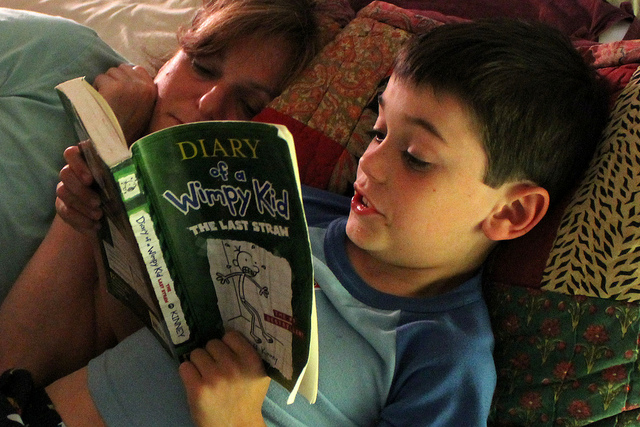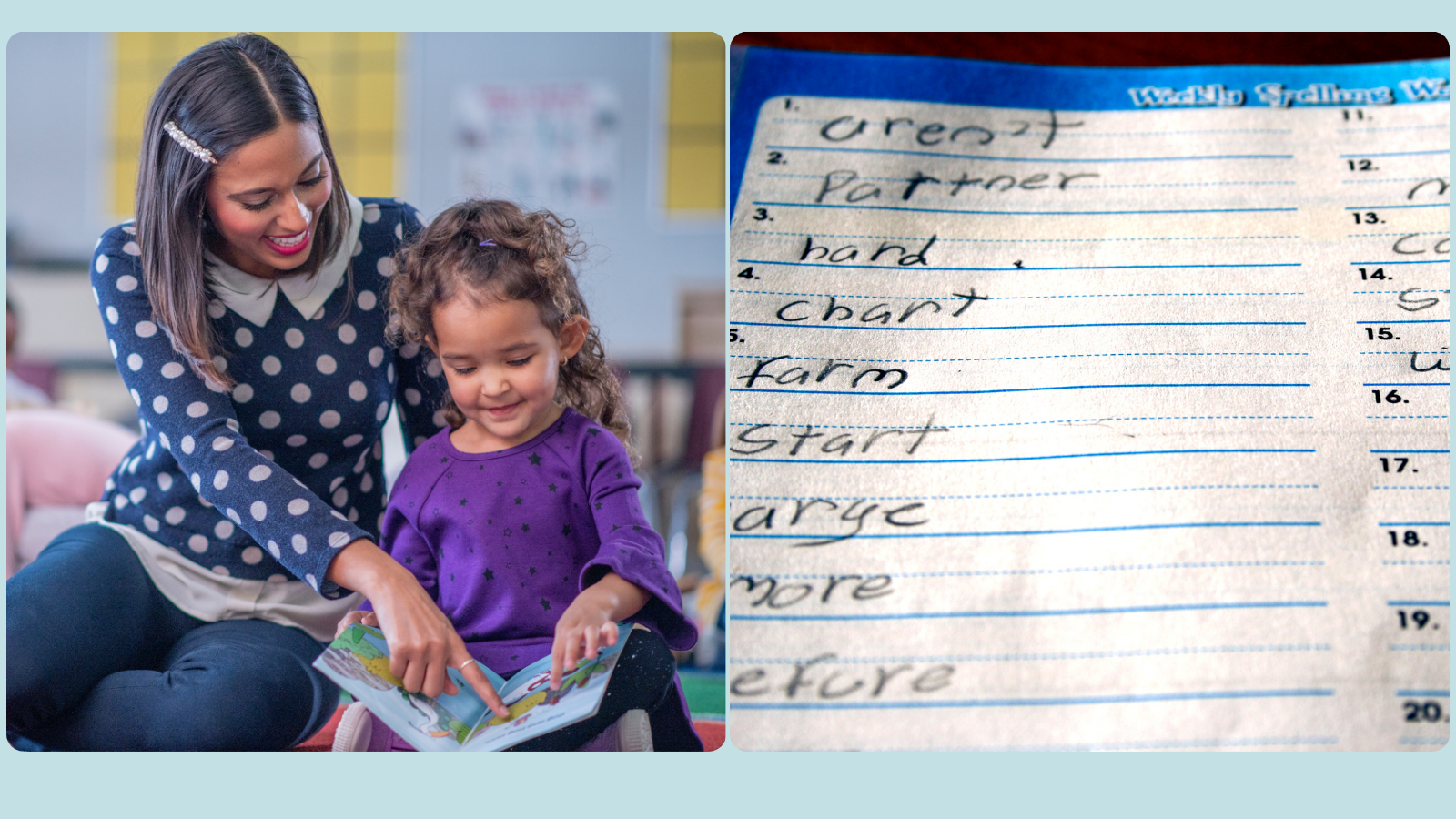15 practical ways to help your son discover a passion for reading
One of my sons would sooner have chewed off his right arm than sit down to read a book – until he discovered Andy Griffiths’ wonderful Treehouse series. Now we have to pry the latest book out of his hands to get him to eat.
Boys in developed countries like Australia do not do as well as girls in standardised reading testing, including NAPLAN. Boys make up the majority of students who struggle with literacy and far outnumber girls in remedial reading classes (e.g. Holbrook, 1988, Gambell & Hunter, 1999, Rutter et al., 2004). On average, boys take longer to learn to read and read less than girls; and significantly more boys declare themselves to be “non-readers” than girls (Smith & Wilhelm, 2002).
We’ve posted before about evidence-based reading training and resources to improve reading decoding and comprehension. But reading is often about the quantity of practice and a boy’s attitude to reading is just – if not more – important to reading outcomes.
So how can you help your book-shy son discover a genuine passion for reading? Here are some practical ideas:
1. The right books are his books
A good book for a boy is one he wants to read (Maloney, 2002).
Many boys like books about action heroes, science fiction and/or fantasy. Others like funny books, e.g. about bodily functions, practical jokes and general mischief. Find books about things that your son is passionate about. Even better, find series of books about things your son loves. Some examples: Andy Griffiths’ Treehouse series, Darren Shan’s horror books, Jeff Kinney’s Diary of a Wimpy Kid series, Anh Do’s WeirDo series, Liz Pichon’s Tom Gates series and Horrible Histories.
Don’t worry if they are below his reading level and be prepared to help him if he’s into a particular book above his reading level. Look for books that are:
- plot based and fast-paced (e.g. Zac Powers, Alex Rider, Darren Shan Saga, Artemis Fowl, Skulduggery Pleasant);
- visual (e.g. Captain Underpants, Treehouse, WeirDo, Diary of a Wimpy Kid, Tom Gates books, Captain Firebeard’s School of Pirates);
- are full of information your son can use in conversations (e.g. terrible joke books);
- are edgy or controversial – worth arguing about;
- contain inspiring ideas – books that have “life-expanding appeal” – especially books about heroes conquering fears and obstacles and having a go (e.g. Roald Dahl, Harry Potter); and
- novelisations of his favourite movies or television shows (e.g. Adventure Time books),
(Smith & Milhelm, 2002).
2. If your son is not into fiction, find other things to read that he is into
Consider science books, sports magazines, comic books, collector cards with stats on them (e.g. Pokémon, sports cards), text-based adventure computer games, even car instruction manuals. The key is finding material that gives your son a reason to read it.
3. Choose books with positive male role models
Look for heroes who are courageous, sensitive, moral, socially adept, honest, nurturing, successful in relationships, responsible and reliable. Many superheroes and action adventure heroes fit the bill.
4. Read aloud
Read aloud with your son so he can hear how a fluent reader sounds. Again, choose books he is into. Use silly voices and actions to bring the story alive.
5. Use technology
Use a search engine like Google to investigate things mentioned in the book that interests your son in more detail. For example, if your hero flies to Egypt to see the pyramids, use Google Maps to have a look at satellite images of them. If the villain fashions a medieval catapult to lay siege to a King’s castle, check out Wikipedia for details about how to make one. Use Google images (in safe mode) and Youtube to help your son visualise places, people and other details.
6. Create a play
Act out favourite scenes from books using action figures and Lego. Build sets and lighting, and film the action on your smart phone. Take it in turns to role play the goodie and baddie roles.
7. Audio books
Listen to audio books of your son’s favourite books in the car to increase his familiarity with the books and to hear great narrators at work. Many of the Roald Dahl audio books are fantastic for this purpose. So, too, are some Enid Blyton books and Just William books and David Walliams’ books.
8. Devise a story line
Make up “missing scenes”, prequels and sequels to the books, which you can draw or write out, then perform. The more outlandish, the better.
9. Have a discussion
Discuss what you’re reading with your son. Encourage him to summarise what’s happened, and to predict what might happen next. Some more comprehension tips are set out here.
10. Deploy Dad or another male as a reading mentor
There’s a lot of evidence that male mentors reading books have a big impact on boys’ attitudes to reading. Whether it’s Dad, another male relative, a male teacher, librarian or speech pathologist, or even a peer, males can help boys see that reading isn’t just for girls and can help show boys that there is a purpose for reading – even something as simple as sports stats, the news or even checking up on work emails.
11. Sport and reading programs
If you have a sporty son, see if any of his favourite sports run a reading program. For example, check out the the NRL’s Rugby League Reads program.
12. Real world projects
Encourage real world projects that require research. For example, ask your son to find out about how to make a go-cart or science experiment from scratch. Then source the parts/materials and make it together following his instructions.
13. Create a book
Help your son to script and make digital comic books, short stories, books, websites (e.g. with WordPress), Powerpoint presentations (with text) or Youtube videos “on location” for relatives and friends. Encourage him to create transcripts. Again, tap into your son’s passions and encourage humour.
14. Family routine
Build recreational family reading time into your weekly routine. Don’t require him to read school books. Let him choose.
15. Don’t reinvent the wheel!
Need more suggestions and resources? Check out these terrific websites for recommended book lists and much more good stuff:
Related articles:
Principal source: Ontario Education. (2004). Me read? No way!: A practical guide to improving boys’ literacy skills. Toronto: Ontario Education.
Image: http://bit.ly/1icD3XA

Hi there, I’m David Kinnane.
Principal Speech Pathologist, Banter Speech & Language
Our talented team of certified practising speech pathologists provide unhurried, personalised and evidence-based speech pathology care to children and adults in the Inner West of Sydney and beyond, both in our clinic and via telehealth.








